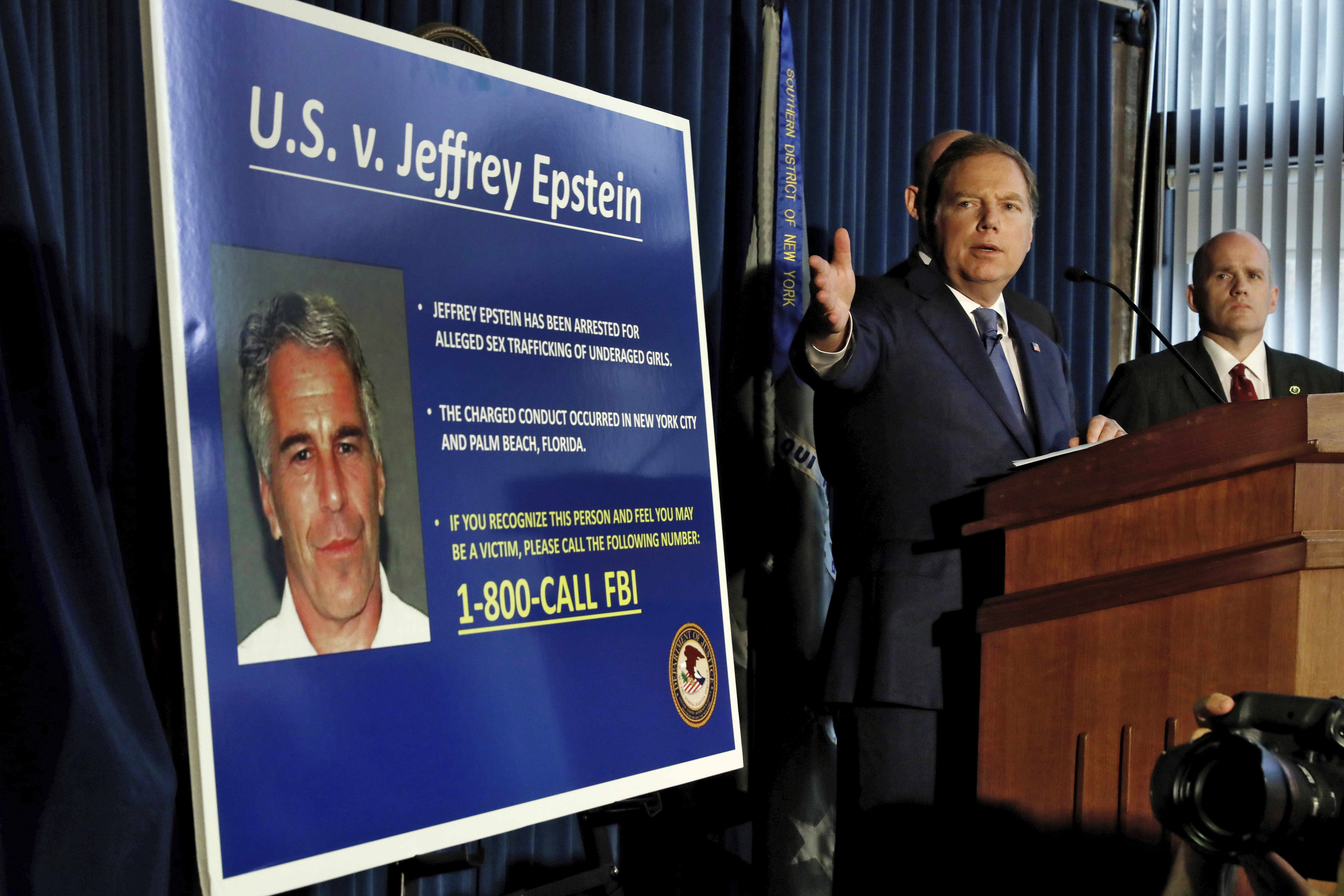Jeffrey Epstein broke America
The circumstances surrounding his life and death reflect several ways in which the United States is damaged, sick, and possibly beyond repair


A free daily email with the biggest news stories of the day – and the best features from TheWeek.com
You are now subscribed
Your newsletter sign-up was successful
Jeffrey Epstein is dead, and somehow America is worse off for it.
News broke Saturday morning that Epstein, the wealthy investor being held on sex trafficking charges, had died of apparent suicide at a federal jail in Manhattan. In life, he was one of the most-hated men in America. But his death — and all the conspiracy theorizing it immediately generated — seemed to make an angry and fearful citizenry even more angry and fearful.
That's quite an accomplishment. But it's also unsurprising. The circumstances surrounding Epstein's life and death reflect several ways in which the United States is damaged, sick, and possibly beyond repair.
The Week
Escape your echo chamber. Get the facts behind the news, plus analysis from multiple perspectives.

Sign up for The Week's Free Newsletters
From our morning news briefing to a weekly Good News Newsletter, get the best of The Week delivered directly to your inbox.
From our morning news briefing to a weekly Good News Newsletter, get the best of The Week delivered directly to your inbox.
In the United States, our confidence in the idea of justice was already weak. Epstein's apparent suicide compounded that sense of violation. Before his recent arrest, Epstein's continued freedom and acceptance in polite society — a decade after getting what looked like a sweetheart deal from federal prosecutors on earlier sex charges — signaled to Americans that powerful and wealthy men are free to commit any grotesque act without significant social or legal penalty. Epstein had connections to presidents and former presidents, and his conviction seemed to be no bar to his acceptance among the Hollywood glitterati.
Let's take Epstein's death at face value — I'm not one for conspiracy theorizing — and accept for the moment that he did in fact kill himself. If so, his death is one final escape from accountability for his actions, and it seems likely in these early days that the best explanation is that an overtaxed prison system let him do it.
That's the least-bad scenario. And it is horrifying.
Our sense of truth — and how to determine it — is also damaged. The sudden proliferation of conspiracy theories following Epstein's death, along with the hashtag virality they achieved on social media, makes one thing clear: There a lot of Americans who believe they already "know" what happened in Epstein's cell, and there is no amount of documented evidence that will change their minds. It used to be a truism that "You're entitled to your own opinion, but not your own facts," but America no longer has anything like a commonly accepted means for determining what facts might mean, or how to distinguish them from mere suspicions and strongly held opinions.
A free daily email with the biggest news stories of the day – and the best features from TheWeek.com
But the conspiracy theories also arise in part because American leadership is badly broken. Hours after Epstein's death became public, President Trump retweeted a conspiracy theory blaming Bill and Hillary Clinton. Bill Clinton deserves scrutiny for his interactions with Epstein, but so does Trump. The president, however, offered up the Clintons as potential villains in Epstein's death without a shred of evidence. Trump's utter disregard for the truth should be no surprise, and yet it can still be breathtaking.
But Trump isn't entirely to blame for the proliferation of conspiracy theories in this case. At the heart of the matter is a profound lack of a sense of justice in America. Conspiracy theories rarely hold more than a grain of truth; usually they're wholly misleading. But they tend to come about for two reasons. Some originate as a response to a deep injustice — 9/11 truthers, for example, sought alternative explanations for the terror attacks on America because the results of those attacks — the lives lost and endless wars launched — were almost too awful to comprehend. Other conspiracy theories arise in order to perpetrate injustice — think of Trump's embrace of the "birther" lie that former President Barack Obama was born outside the United States. Epstein's death might do both of these things: It certainly has denied justice to his victims, but it's also already being laid at the feet of unlikely third parties, as demonstrated in and perpetuated by Trump's tweets.
An odd thing happened with Trump's tweet, though. As far as I can tell, no journalist went to Republicans in Congress to find out what they thought of the president's latest transgression. (To be fair, it is August and Congress is in recess.) But they didn't need to. Trump has flooded the information ecosystem with so much untruth in recent years, and Republicans have largely decided they're OK with that. The president of the United States just accused a predecessor and a former election opponent of murder. For many Americans, that accusation will live as truth.
All of this — the broken nature of our leadership, along with our deteriorating sense of truth and justice — is intertwined. The ascendancy of Trump was an early manifestation of the problems that afflict us all. Jeffrey Epstein's death is the latest.
Joel Mathis is a writer with 30 years of newspaper and online journalism experience. His work also regularly appears in National Geographic and The Kansas City Star. His awards include best online commentary at the Online News Association and (twice) at the City and Regional Magazine Association.
